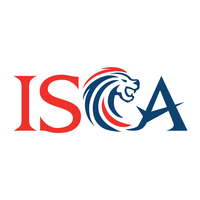FAQs for ASEAN CPAs
ASEAN CPA is a title accorded to professional accountants who are ASEAN nationals and possess the necessary qualifications and experiences that comply with the ASEAN Mutual Recognition Arrangement on Accounting Services (MRAA).
ASEAN CPAs are legally allowed to provide accountancy services (except for signing off of the independent auditor’s report and providing accountancy services that require domestic licensing) in ASEAN markets without having to undergo extensive re-training or re-qualification procedures.
If you wish to venture to other ASEAN market, you should register to be a Registered Foreign Professional Accountant (RFPA) in the other ASEAN country/(ies) excluding Singapore, which you are interested to provide non-regulated professional accountancy services.
With the ASEAN CPA title in your resume and/or name card, it will provide you with market access to the rest of ASEAN, presenting new opportunities in one of the highest growth economic regions in the world!
A professional accountant who meets the following qualifications, practical experience and conditions is eligible to apply to be an ASEAN Chartered Professional Accountant (ASEAN CPA):
- Holds nationality of an ASEAN country
- Completed an accredited accountancy degree, or professional accounting education programme recognised by ISCA;
- Holds a current and valid ISCA membership (CA (Singapore) or Associate (ISCA));
- Relevant practical experience of minimum three (3) years cumulatively within any five (5) year period prior to application;
- Complied with the Continuing Professional Education (CPE) policy of ISCA; and
- No record of serious violation of technical, professional or ethical standards.
It is not necessary for your attestant to be a certified accountant. The attestant can be a staff or a colleague from your current/ past employment. For example, a Human Resource representative or direct reporting officer/supervisor.
Application process will take at least twelve weeks. Notification of your application outcome will be sent to you via e-mail.
Please refer to the application flow chart for a better understanding on the application process.
Yes, ASEAN CPAs have to renew their ASEAN CPA title annually in the ISCA eServices portal together with their ISCA membership.
Public can verify status of an ASEAN CPA on the ASEAN CPA Register.
Assuming that you hold a valid ASEAN CPA title registered with ISCA and wish to provide professional accountancy services in another ASEAN country outside of Singapore , you should registered to be Registered Foreign Professional Accountant (RFPA) with that country. See example below.
A RFPA will have to work in collaboration with a professional accountancy firm or be employed by a company organisation registered in the Host country and by bound by the domestic laws and regulations of the Host Country.
Please click here to view the RFPA registration detail (for example registration fee, duration of application process, etc) for the respective ASEAN markets.
Example*
Harry is a Singaporean and an ISCA member. He holds a valid ASEAN CPA title registered with ISCA. He is keen to provide non-regulated professional accountancy services in Myanmar but does not want to undergo extensive re-training or re-qualification procedures in order to qualify as an accountant in Myanmar. With the valid ASEAN CPA title in hand, Harry should register himself as a RFPA with the relevant body in Myanmar in order to effectively cross borders and provide non-regulated professional accountancy services in Myanmar.
*Note: This is an illustrative example to facilitate your understanding. Please check the RFPA registration process with the respective authorities of the ASEAN country which you are interested in.
Issuance of work permit is not under the ambit of ASEAN Chartered Professional Accountant Coordinating Committee (ACPACC). ASEAN CPAs will be bound by local immigration policies of the Host Country and will need to check the immigration policies of the Host country. Work permits are subject to approval by the immigration authority of the Host Country.
ASEAN CPAs who are ISCA members are expected to uphold and maintain professional and ethical standards within the accountancy profession in ASEAN. Such member shall conduct himself in a manner consistent with the good reputation of the accountancy profession and refrain from any act or default, which is likely to bring discredit to the profession, ISCA or to himself. ASEAN CPAs who are ISCA members are bound by ISCA Code of Professional Conduct and Ethics (the Code), rules, professional standards and professional ethics. ISCA takes any breach of its Code, rules, professional standards and professional ethics seriously and has in place a robust investigation and disciplinary process to investigate into any complaint against its members for misconduct and/or such breaches.
The ASEAN Mutual Recognition Agreement on Accountancy Services (MRAA) was an agreement to enhance cooperation in services amongst ASEAN Member States. Hence, the ASEAN CPA is open to only ASEAN nationals.

/infocomm/istock-1065240778-c.jpg?sfvrsn=50a9b558_2)
/audit-assurance/istock-1133945516-c.jpg?sfvrsn=d158128a_2)
/courses/istock-1222725146-c1.jpg?sfvrsn=339e8e96_2)
/leadership-personal-development/istock-1049824998-c.jpg?sfvrsn=3865afcc_12)

.jpg?sfvrsn=d4038e84_0)

/courses/istock-1140691163-c.jpg?sfvrsn=24ccc519_2)
/audit-assurance/istock-1169206203-c.jpg?sfvrsn=1d6f9b25_2)

/business-management-global-connection/istock-1167579720-c.jpg?sfvrsn=ff93f9a5_2)

/professionals/istock-845530100-c.jpg?sfvrsn=46efdedd_2)





/legal-secretarial/istock-866706340-c.jpg?sfvrsn=d7f57b8c_2)